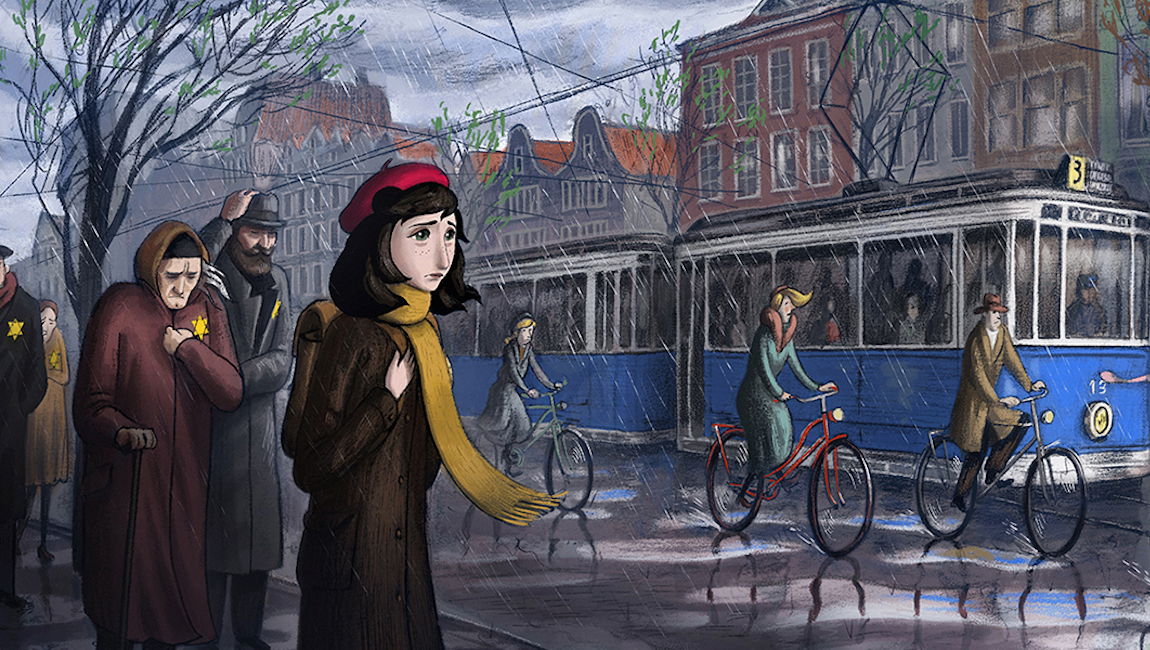Fourth of July is a clumsy, charmless “comedy” destined to be immediately forgotten about.
You have to hand it to Louis C.K.: he may be a deplorable human being who has shown little to no remorse for his past actions, but he’s certainly a great friend. Such a good pal, in fact, that he’s willing to help jump-start stunted careers with what little remaining cultural relevance he continues to carry. What a thoughtful dude. In fact, if it wasn’t for the sustained odious reputation C.K.’s honorifics bring, there would be little to no reason to care about Fourth of July, a by all accounts mawkish family melodrama that happens to credit Louis as co-writer and director. He also appears in two scenes, and his voice can be heard during a phone call — so one can’t even really label this as a genuine C.K. picture, considering his entire shtick revolves so heavily around his own self-loathing and personal strife. If one were to try and salvage an argument for auteurism here, little-known Joe List would probably fit the bill a bit more accordingly: as the film’s other co-writer and lead, there’s a stronger correlation with the film’s narrative beats and what little information is publicly available about List’s personal life. Our central protagonist Jeff — who, much like List, is a recovering alcoholic from the Upper East Coast, happily married to Beth (Sarah Tollemache, List’s real-life spouse), and is about to enter into his early 40s — is an obvious stand-in for the co-writer, who will be spat upon and childishly ridiculed for most of the runtime until he fights back and is given the moral high-ground in both cursing out his family and then forgiving them 20 minutes later.
You see, Jeff has issues (doesn’t every well-off white dude seem to?), and he blames them all on his loud, boorish family who crack homophobic jokes and mock his incessant whining. He has an emotionally stunted dad who never speaks (Robert Walsh) and a callous mother (Paula Plum) who’s accurately compared to a spider at one point; he also has a piece of shit cousin played by a piece of shit comedian (Nick Di Paolo), so call it method casting. Every year they gather for the Fourth of July weekend at his mother’s massive New England property, and this time, Jeff’s finally going to get off his chest what’s been building for years. It’s the type of scenario Woody Allen would have gone with in the late ’60s/early ’70s when he was making “funny” pictures, and features a screenplay he would have either workshopped another draft of or thrown out entirely. However, List is a lot like Allen as an actor, in that both are extremely pathetic and off-putting presences, but at least Allen was usually in on his own pompousness. List isn’t very likable, funny, or even that charming; after a little while, you sorta start to root for his evil family.
On top of all that, the film’s comedic rhythm is never really established out of fear that it’ll sand down the drama’s prickliness, relying instead on lame quips and exposition-esque banter to fill the rampant amount of dead air produced. But the introspection attempted never develops much beyond basic familial psychology — most of the irritable elements come from the general abrasive vibe the film carries, not so much actually challenging the audience — and things end on a false note of reconciliation that feels clumsy and rushed, which is something of a recurring motif here both thematically and formally. There’s a strong sense of “student film” that lurks with every shot-reverse-shot employed, with weird handheld camera shots thrown in for no reason and laughable use of green-screened aftereffects to externalize Jeff’s fraught psyche. Without C.K.’s involvement, this would have comfortably been the type of film that could reliably premiere at Sundance and be shuttled onto VOD streaming services in a few months time, another whiny, victim-fueled cry from someone nobody cared to hear from. With the Louis name brand attached, Fourth of July has become a curious media item for a week: something to be laughed at and then forgotten immediately after.







